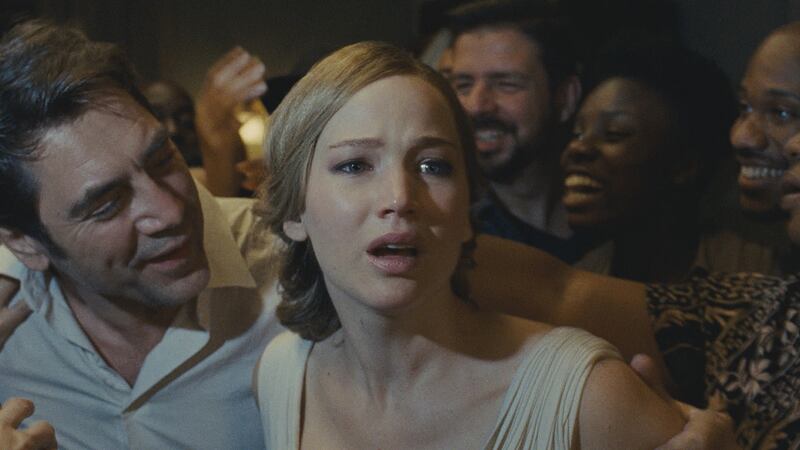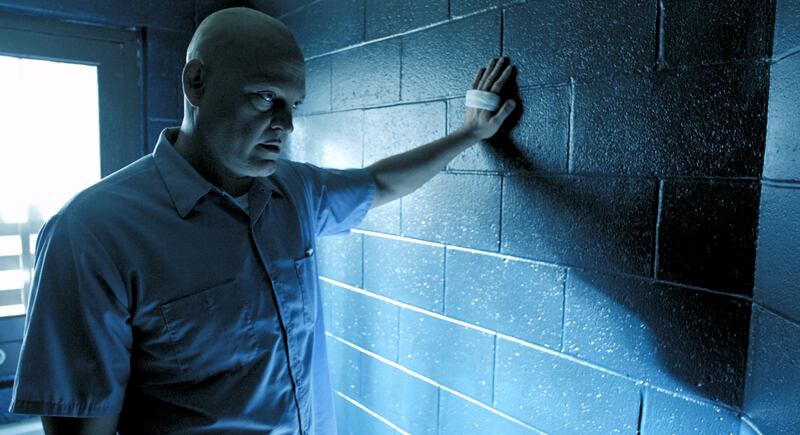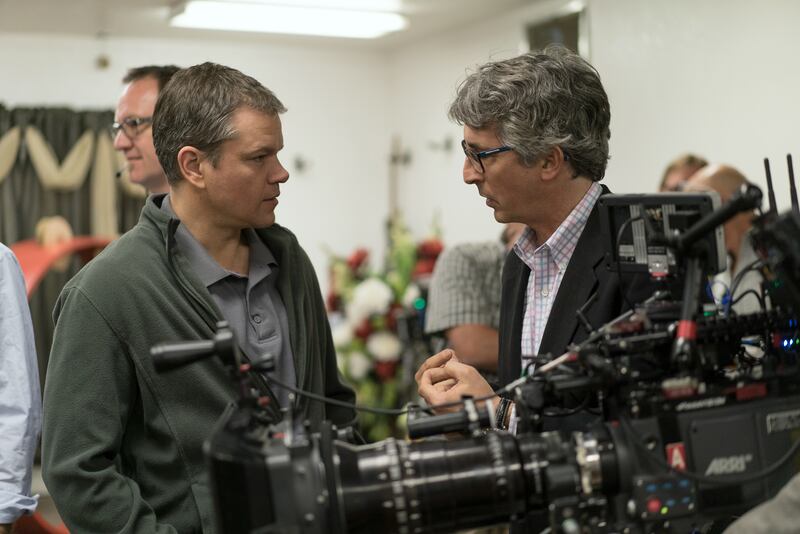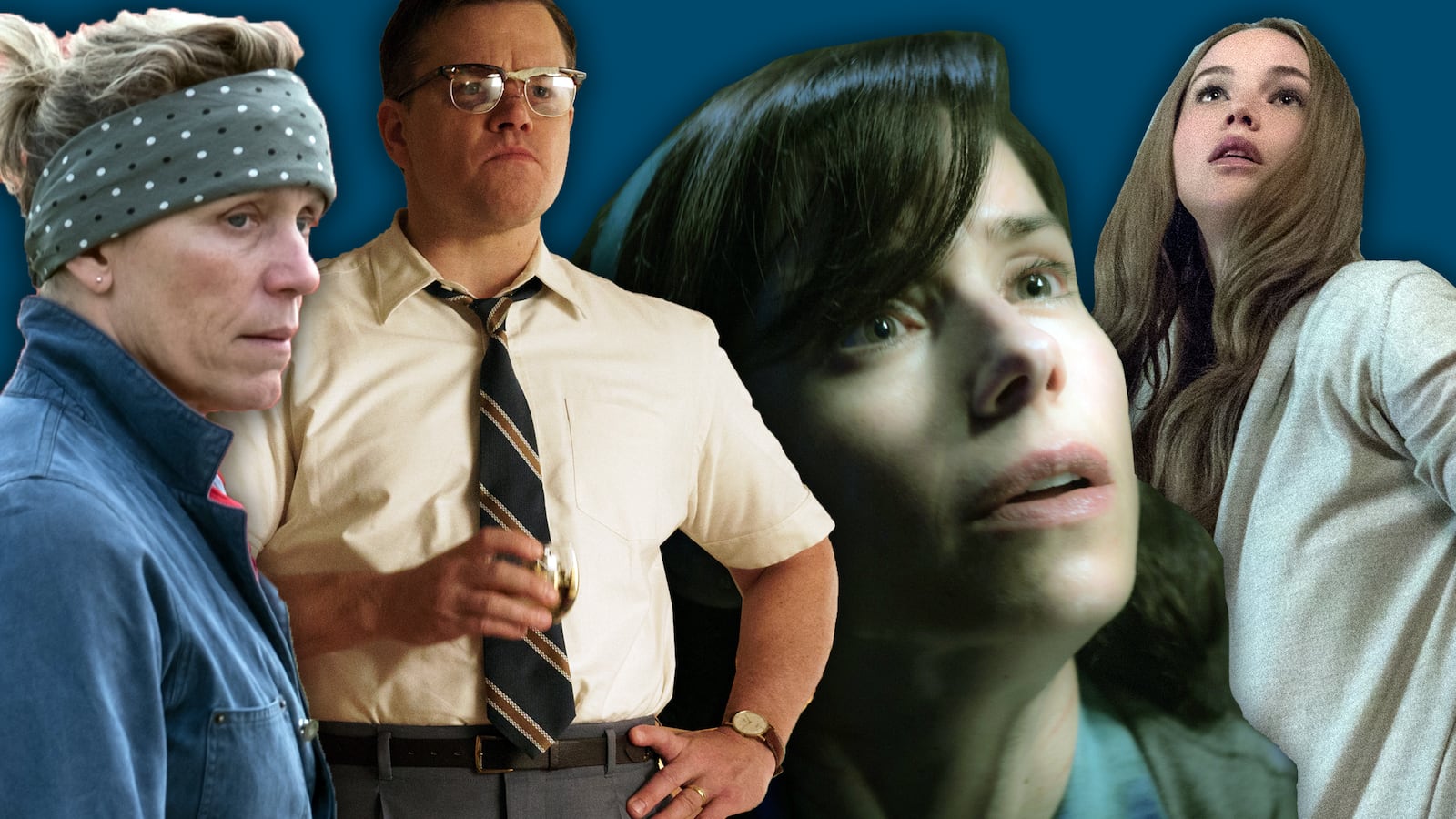VENICE, Italy — Though founded under regrettable circumstances—in 1932, at the behest of dictator Benito Mussolini—the Venice Film Festival has in recent years emerged as the world’s premier starting ground for Oscar season.
While undoubtedly benefitting from the brief turf war between concurrent fests Telluride and Toronto, as well as a considerable dip in quality at Cannes, Venice has also exhibited top-notch programming thanks to the stewardship of festival director Alberto Barbera, who’s been at the helm since 2011. The last four movies to open Venice were Gravity, Birdman, Spotlight, and La La Land. All of those films received a minimum of six Oscar nominations, including Best Picture and Best Director, with two of the films (Birdman, Spotlight) taking home the night’s big prize.
Last year’s edition was in many ways a banner year for the Lido fest. In addition to opener La La Land, the films Arrival, Jackie, Nocturnal Animals, and Hacksaw Ridge also premiered there on their way to receiving a grand total of 32 Academy Award nominations.
With all this in mind, hopes were astronomically high for 2017. And once again, Venice didn’t disappoint. Here are some of the biggest takeaways (awards-related and otherwise) from this year’s fest.
THE WOMEN TAKE THE LEAD

Jennifer Lawrence stars in 'mother!'
Paramount PicturesIn addition to Best Picture and Best Director, Venice has evolved into an excellent showcase for female performances, with many of last year’s biggest contenders—Amy Adams in Arrival, Natalie Portman in Jackie, and eventual winner Emma Stone in La La Land—debuting at the fest. This year’s most buzz-worthy performance came courtesy of British actress Sally Hawkins, whose achingly heartfelt turn as a mute janitor who falls for a mysterious sea creature in Guillermo Del Toro’s The Shape of Water had audiences swooning. Hawkins, who was cruelly passed over by the Academy for her eccentric turn in Mike Leigh’s Happy-Go-Lucky, has now demonstrated her considerable range, from chewing up scenery as the cheery Poppy to conveying tenderness and love whilst uttering nary a word here. The Shape of Water should, if there is any justice, also receive numerous other nominations, both on the technical side and for Del Toro, who’s crafted an adult fairy tale for the ages.
The other most talked-about performance by a woman was Frances McDormand’s headstrong, no-nonsense mother in playwright Martin McDonagh’s razor-sharp black comedy Three Billboards Outside Ebbing, Missouri. Though she won an Oscar for Fargo and an Emmy for Olive Kitteridge, it’s been over a decade since the dynamo actress has received any Academy love. That should change here. Charging about in coveralls and a bandana wrapped around her head like a modern-day Rosie the Riveter, she is an absolute force of nature as a mother waging war against the local police department for failing to find her daughter’s killer. Her undressing of the town priest, in a fiery several-minutes-long speech, elicited a near standing ovation in the theater, while the occasional cracks in her indomitable façade, as in her opening up to a stray deer, really sing.
mother!, the latest nightmarish vision from filmmaker Darren Aronofsky, ignited fierce debate along the Lido for its merciless, incredibly violent depiction of a woman’s life sliding into chaos. I am firmly in the “pro” camp, finding the film to be a compelling, gleefully unhinged bit of self-analysis by the director. One thing people weren’t divided on, however, is the power of Jennifer Lawrence’s performance as the titular Mother. Lawrence, without question one of the most naturally gifted actors in Hollywood, for the first time portrays a character stripped of her voice, agency, and body; a woman who, unlike her Katniss Everdeen or no-bullshit ladies with David O. Russell, falls prey to a man (Javier Bardem) who will stop at nothing to satisfy his insatiable ego and lust for attention. Through it all, Lawrence’s Mother endures sadism beyond belief, yet is never short of compelling. The film’s divisiveness may prove to be too much for the Academy, but then again, only a fool would count out J. Law.
BIGGEST SURPRISE

Vince Vaughn stars in 'Brawl in Cell Block 99.'
Venice Film FestivalWhile The Shape of Water, mother!, and Three Billboards Outside Ebbing, Missouri were the talk of the fest going into it, absolutely nobody was crowing about Brawl in Cell Block 99—the new film from novelist turned filmmaker S. Craig Zahler, whose horror-western Bone Tomahawk turned quite a few heads in 2015.
Brawl opens on Vince Vaughn like you’ve never seen him: as a buff, imposing baldy with a crucifix tattoo on the back of his head. He’s been fired from his job as a tow truck driver and caught his wife (Jennifer Carpenter of Dexter) cheating on him. The two reconcile and, cut to 18 months later, they are happily married, she is pregnant, and he is running drugs for a local crime boss/pal. A drug deal gone awry gets him thrown in the slammer for seven years, and finds him on the outs with a Mexican drug cartel—which then proceeds to kidnap his pregnant wife and threaten to give her a particularly gruesome abortion if he does not somehow get transferred to the most violent wing (Cell Block 99) of the most terrifying prison imaginable and kill a man.
This sets off a bloody chain of events wherein Vaughn’s character, a former boxer, brawls his way from a medium-security facility to the aforementioned hell on earth (run by a hilariously sinister Don Johnson), and then exacts his own form of revenge on the cartel holding his wife from the inside. Zahler’s film is incredibly brutal—faces are torn apart, bones are cracked, heads explode—albeit in the humorous, wink-and-a-nod grindhouse sense, and Vaughn, who’s suffered through a string of duds in recent years, has never been more enjoyable. The towering 6-foot-5 actor has never, with the exception of the haymaker he throws at Bradley Cooper at the end of Wedding Crashers, tapped into his pure physicality, and here, as a former boxer turned prison tough, he does an ace job of fusing his size with his penchant for cheeky one-liners, turning in a performance that is sure to leave a mischievous grin on your face.
BIGGEST LETDOWN

Matt Damon and Alexander Payne on the set of 'Downsizing.'
Paramount PicturesWhile George Clooney’s Suburbicon—which unspooled at the fest—proved an enjoyable, twisty, incredibly timely lark, with winning turns from Matt Damon and Julianne Moore as a morally compromised 1950s couple and Oscar Isaac as the insurance claims investigator hip to their crimes, the other Matt Damon-starring film premiering in Venice, opening night movie Downsizing, was a colossal disappointment.
It’s the first big swing-and-a-miss from Oscar-winning filmmaker Alexander Payne, the man behind modern American cinema classics like Election and Sideways. Its high-concept premise is indeed intriguing, with Matt Damon and Kristen Wiig playing a near-future couple who agree to shrink themselves down in order to live in the lap of luxury and save the environment, only to have Wiig’s character back out after Damon’s has already gone through with the procedure. But after its first hour, once the Mike Judge-ian satirical sheen has worn off, it transitions into a bizarre treatise on climate change, mankind’s reciprocal altruism, and the end times, and in the process loses sight of the cynicism and bite that makes Payne’s works so damn effective.






